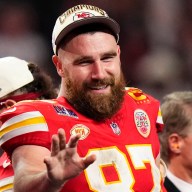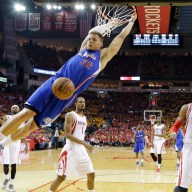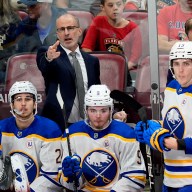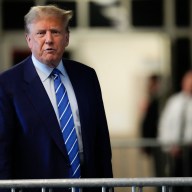 Fans pose in front of Harry Potter costumes during the preview of the Harry Potter exhibition.
Fans pose in front of Harry Potter costumes during the preview of the Harry Potter exhibition.
Credit: Getty Images
Political science professor Anthony Gierzynski has analysed the influence of “Harry Potter” on youngsters in America. Metro sat down with the author of “Harry Potter and the Millennials: Research Methods and the Politics of the Muggle Generation.”
Metro: You wrote three books about U.S. politics. How did you get the idea of mixing your previous studies with the Harry Potter phenomenon?
Gierzynski: I have long had an interest in, and speculated about, the role of entertainment media in politics, sparked by movies like “Do the Right Thing,” “Star Wars,” “Independence Day” and movies portraying the U.S. president as an action hero in the 1990s, the portrayal of politicians in movies and TV (which is nearly universally negative), the different “Star Trek” series and, more recently, “Battlestar Gallactica” (which is rich with politics) and so on. And I have had many conversations with my students about the subject and ultimately decided to design a class whose purpose would be to investigate entertainment media effects. The first few semesters of the class we ran experiments, conducted surveys and collected qualitative data on the effects of entertainment media such as “Star Wars,” “The Simpsons” and “South Park” and overall TV viewing habits (some of that research is reported in this book), before doing the “Potter” research.
I also guess you read the books and watched the movies. Were you influenced by these kinds of phenomena growing up (“Star Wars,” etc.)?
I am a fan of Harry Potter, but I am a Gen Xer, not a millennial, so other entertainment media that I was exposed to in my formative years — yes, “Star Wars,” “The Lord of the Rings” books, “Saturday Night Live” and “Star Trek” — were the mains sources of influences for my political socialization.
One the main points of your book is that you chose people who grew up with the characters, over a long period (10-15 years). Thus, you note that millennials read it during their most politically vulnerable and formative years. Your study shows that fans have transposed some lessonsvalues from the series (equality, tolerance, commitment, loyalty, diversity, anti-violenceanti-torture) into their real lives. Can you tell me more about these observations?
The key thing is that, while the “Potter” series was a story designed to entertain, the nature of the story (and indeed any story) is that the characters learn certain lessons as the plot moves along and exhibit certain characteristics. As we become immersed in the story and identify with characters we tend to internalize those lessons and sometimes adopt those characteristics for our own. So, Harry and his friends evince an aversion to violence, fight for tolerance and equality and oppose oppressive authority, and we found fans had similar traits on those very attitudes.
Could “Harry Potter” keep continuing to have this kind of impact? “Star Wars” is still popular many decades after the first movie.
Possibly — I still have students who are “Potter” fans. The next generation, however, may adopt a different entertainment phenomenon. … Only time will tell what catches fire with them.
Will there be another study in the future in order to go further? Do you want to keep working on this subject?
Yes. At the end of the book I have a website address for readers to tell me their stories about “Harry Potter” or any other entertainment sources and their political effects in order to gather more qualitative data to see whether there is additional support. I am also working on other research projects on entertainment media effects that utilize experimental designs that can establish causal relationships. I will be submitting to a journal this fall a paper I presented at a political science conference that looks at how villains of science fiction, fantasy and superhero genres affect views about criminal justice and terrorism policy.
















